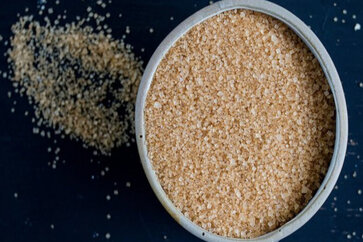Ayurvedic Medicine For Urinary Tract Infection
Ayurveda, a traditional healing system, offers effective treatment for urinary tract infections (UTIs) caused by bacterial infections in the urinary tract. It aims to restore balance to the body’s infection-fighting properties within the urinary system.
According to Ayurveda, all living things are characterized by three active doshas: Vata, Pitta, and Kapha. Pitta, in particular, is believed to contribute to the warming of the body and the production of toxins that can accumulate in the urinary tract, leading to UTIs.
Ayurveda takes an integrated approach to treating UTIs, which includes adopting a healthier lifestyle, making modifications to the diet, taking herbal supplements, and practicing yoga. These approaches can be beneficial and supportive in managing UTIs.
Causes Of Urinary Tract Infection
Urinary tract infections (UTIs) can be caused by various factors. The most common cause of UTIs is bacteria entering the urinary tract. The bacteria typically originate from the digestive system and make their way into the urethra, eventually reaching the bladder and potentially spreading to the kidneys.
The primary bacterium responsible for UTIs is Escherichia coli (E. coli), which normally resides in the intestines but can cause an infection when it enters the urinary tract.
Some specific causes and risk factors of UTIs include:
1. Sexual activity: Sexual intercourse can introduce bacteria into the urinary tract, increasing the risk of infection. This is more common in women.
2. Anatomy: In women, the urethra is shorter in length compared to men, which makes it easier for bacteria to reach the bladder. In men, an enlarged prostate gland can obstruct urine flow and increase the likelihood of UTIs.
3. Urinary tract abnormalities: Any structural or functional abnormalities in the urinary tract, such as urinary tract stones or vesicoureteral reflux (when urine flows backward from the bladder to the kidneys), can contribute to UTIs.
4. Suppressed immune system: Individuals with weakened immune systems, such as those with diabetes, HIV/AIDS, or undergoing chemotherapy, are more susceptible to UTIs.
5. Catheter use: Urinary catheters, which are often used in hospitals or for individuals with urinary incontinence, can introduce bacteria into the urinary tract and lead to infection.
6. Menopause: The decline in estrogen levels during menopause can affect the urinary tract’s natural defenses, making women more prone to UTIs.
It’s essential to note that these are general causes and risk factors, and each individual’s situation may vary. If you suspect you have a UTI or have recurrent UTIs, it is recommended to consult with a healthcare professional for an accurate diagnosis and appropriate treatment.
Diet for urinary tract infection
A balanced and healthy diet can play a supportive role in managing urinary tract infections (UTIs) and promoting overall urinary tract health. Here are some dietary recommendations that may be beneficial:
Stay hydrated: Drinking an adequate amount of water helps flush out bacteria from the urinary tract and dilutes urine, reducing the risk of infection. Aim to drink at least 8 glasses of water per day.
1. Cranberry juice: Unsweetened cranberry juice or cranberry supplements may help prevent UTIs by inhibiting bacteria from adhering to the urinary tract walls. However, it is essential to note that cranberry products are not a substitute for medical treatment if you already have a UTI.
2. Probiotics: Probiotics are beneficial bacteria that can help maintain a healthy balance of bacteria in the urinary tract. Consuming foods like yogurt, kefir, sauerkraut, and other fermented foods that contain probiotics may be beneficial.
3. Vitamin C: Foods rich in vitamin C, such as citrus fruits, berries, bell peppers, and leafy greens, can acidify the urine and make the urinary tract less hospitable for bacteria.
4. Avoid irritants: Some foods and beverages can irritate the urinary tract and worsen UTI symptoms. These include spicy foods, caffeine, alcohol, carbonated drinks, and artificial sweeteners. Limiting or avoiding these substances may help alleviate discomfort.
5. Garlic: Garlic has natural antimicrobial properties and can help fight off bacterial infections. Adding garlic to your meals or taking garlic supplements may provide some benefits.
6. Avoid bladder irritants: Certain foods and beverages can irritate the bladder, making UTI symptoms worse. These include spicy foods, acidic foods (like tomatoes and citrus fruits), alcohol, caffeine, and carbonated drinks. Limiting or avoiding these substances can help reduce discomfort.
It’s important to note that while diet can support urinary tract health, it is not a substitute for medical treatment. If you suspect you have a UTI or have recurrent UTIs, it is crucial to consult with a healthcare professional for an accurate diagnosis and appropriate treatment. They can provide personalized advice based on your specific situation.
Herbal Treatment For Urinary Tract Infection
Herbal remedies can be used as a complementary approach to help manage urinary tract infections (UTIs). It’s important to note that while herbal treatments may provide relief for mild UTIs, they are not a substitute for medical treatment, especially in severe or recurrent cases.
If you suspect you have a UTI, it is essential to consult with a healthcare professional for an accurate diagnosis and appropriate treatment. Here are some herbal remedies that are commonly used for UTIs:
1. D-mannose: D-mannose is a type of sugar that can help prevent bacteria from adhering to the urinary tract walls. It is available as a supplement and is often used as a preventive measure against UTIs.
2. Cranberry: Cranberry is well-known for its potential benefits in preventing UTIs. It contains compounds that can prevent bacteria from adhering to the urinary tract walls. It is available as juice, supplements, or capsules. It’s important to choose unsweetened cranberry products to avoid added sugars, which can worsen UTI symptoms.
3. Uva Ursi (Bearberry): Uva Ursi is a herb that has antimicrobial properties and may be beneficial in treating UTIs. It contains a compound called arbutin, which is converted into a substance that can help fight off bacteria in the urinary tract. Uva Ursi should be used under the guidance of a healthcare professional, as it can have side effects and should not be used for an extended period.
4. Goldenseal: Goldenseal is another herb with antimicrobial properties that may be useful in UTI treatment. It contains a compound called berberine, which has been shown to have antibacterial effects. Goldenseal should be used cautiously and for a short duration, as prolonged use can lead to side effects.
5. Buchu: Buchu is an herb that has been traditionally used for urinary tract infections. It has diuretic and antimicrobial properties that can help flush out bacteria from the urinary system. It is available as a supplement or in herbal tea form.
6. Horsetail: Horsetail is a herb that acts as a diuretic and may help in flushing out bacteria from the urinary tract. It is available as a supplement or in tea form.
Note: It is crucial to consult with a healthcare professional or a qualified herbalist before using herbal remedies for UTIs. They can provide guidance on the appropriate dosages, potential side effects, and any interactions with medications you may be taking.























